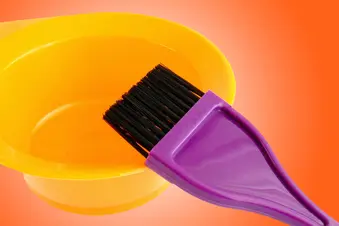Quiz: Test Your Hair Coloring Know-How


Question 1/15
How many women color their hair?
- 10%
- 20%
- 75%
Question 2/15
If you use permanent dye, how can you protect your hair?
- Use special shampoo and conditioner.
- Wait two months between colorings.
- Wash with warm water.
Question 3/15
Bleaching your hair will make it fall out.
- True
- False
Question 4/15
How long should you wait between colorings?
- At least one week
- At least two weeks
- At least three weeks
- At least four weeks
Question 5/15
What can damage color-treated hair?
- Water
- Sunlight
- Both
- Neither
Question 6/15
You should use the same dye to color your eyebrows to match your hair.
- True
- False
Question 7/15
Why is it a good idea to change your hair color as you get older?
- It shows you're hip.
- Your skin is changing.
- It keeps hair healthy.
Question 8/15
How many men over 40 dye their hair?
- About 5%
- About 10%
- About 30%
- About 50%
Question 9/15
How many chemicals are used in hair dye?
- Five main types
- About 100
- More than 5,000
Question 10/15
To find out if you’re allergic to a specific hair dye, you should smell it to see if it makes you cough or sneeze.
- True
- False
Question 11/15
It's OK to mix different hair color products to get the perfect shade.
- True
- False
Question 12/15
Henna usually gives you shades of which color?
- Black
- Brown
- Yellow
Question 13/15
Which hair dye ingredient is banned in some parts of the world but allowed in the U.S.?
- Henna
- Lead acetate
- Acid yellow
Question 14/15
Why do semi-permanent dyes fade so fast?
- They're usually light colors.
- They don't have chemicals.
- Shampooing washes away pigment.
Question 15/15
It's safe to color your hair when you're pregnant.
- True
- False

